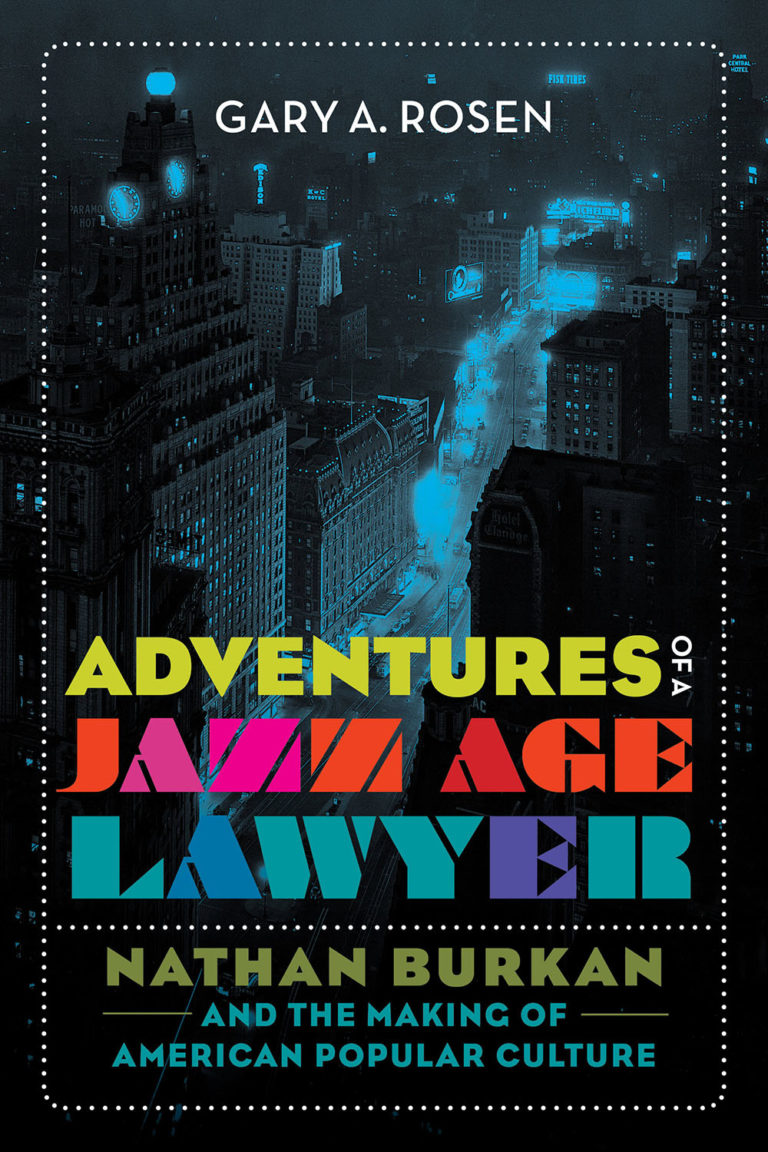The Little Flower: Nathan Burkan and Fiorello LaGuardia
In November 1933, New York City mayor John O’Brien lost his bid for reelection by a landslide to Fiorello LaGuardia, who was running on a Republican-Fusion ticket. In the waning days of the year, the lame duck O’Brien appointed Nathan Burkan to serve as chairman of the Triborough Bridge Authority.
Plans for a Y-shaped span that would connect Manhattan, the Bronx, and Queens had been on the boards for nearly twenty years. Some preliminary construction had been done, but work had long been stalled due to lack of funding. President Roosevelt’s New Deal gave the project a jumpstart in the form of a $35 million loan commitment from the federal Public Works Administration. Construction was expected to employ eighteen thousand at the depth of the Great Depression.
In the spring of 1933, the state legislature created the three-man Triborough Bridge Authority to oversee construction and operation of the bridge. It was to be an independent body, but the mayor of New York City was granted the power to appoint its members. When Mayor O’Brien’s initial appointee to the chairmanship resigned in November due to illness, Burkan accepted the unpaid post, “at the sacrifice of a lucrative law practice,” he said, “to put thousands of men to work and for that reason only.”
The incoming mayor was more than mildly chagrined at being saddled with this fait accompli. LaGuardia’s anglicized nickname, “the Little Flower,” belied his razor-sharp elbows. LaGuardia was intent on making the city’s most important public works project an exemplar of the sort of good government he had promised during his campaign. Before his inauguration, he had his aides audit the Authority’s expenditure of the first $100,000 tranche of federal funds. Their report disparaged Burkan and his two fellow O’Brien appointees on the Authority as “Democrats who have not been identified conspicuously with efforts to clean up the city.” Within days of taking office, the LaGuardia administration had leveled charges of malfeasance, inefficiency, and incompetence against Burkan’s two colleagues, resulting in two vacancies for the new mayor to fill. (The matters complained of―a kickback on an office lease, and payments of excessive salaries and fees―all predated Burkan’s appointment as chairman.) When he heard that Burkan was telling friends that he expected to be next on the chopping block, LaGuardia quipped: “I am always glad to get suggestions from Mr. Burkan, and this one will receive the Mayor’s serious consideration.”
LaGuardia sent Burkan a letter demanding that all further Authority communications to the federal government be transmitted through the office of the mayor. “We are going to build a bridge, and not patronage,” LaGuardia vowed. “We are going to erect a structure of stone and steel. That word is spelled ‘steel,’ and not ‘steal.’” Burkan deeply resented LaGuardia’s “unwarranted, despicable and low accusations.” Did the Mayor really think that “men who undertake work of this patriotic nature should be called thieves” to suit his political exigencies?
LaGuardia never attempted to remove Burkan from the Authority; he preferred to keep him around as a convenient scapegoat for anything that went wrong. LaGuardia was content to control a majority of the three-man board, especially since he was able to fill one of the seats with Robert Moses. Moses was already serving as president of the Long Island State Park Commission, as chairman of the State Council of Parks, and as New York City parks commissioner. The pattern of Moses―the subject of Robert Caro’s classic biography The Power Broker―acquiring new unelected posts while never relinquishing the old ones would continue over the course of his career, during which he supervised construction of thirty-five highways, thirteen bridges, two world’s fairs, Jones Beach State Park, and Lincoln Center.
Immediately upon taking his seat, Moses became the de facto chief executive officer of the Triborough Bridge Authority, leaving Burkan with no actual power to go with the title of chairman. Only when trouble was brewing did Moses recede into the background and let Chairman Burkan, the Tammany Hall holdover, take the incoming flak. At one point, the steel workers union and the steelmakers trade association complained that the Authority had purchased about $19,000 worth of German steel to meet a specialized engineering requirement. Moses left it to Burkan to explain to the public that the German bid had come in so far below those of domestic steelmakers that, under regulations governing the use of federal funds for the bridge, the Authority had no choice but to award the contract to them. Secretary of the Interior Harold Ickes, who oversaw the Public Works Administration, turned the ire of the American steel industry back on Burkan: “Mr. Burkan has all the authority in the world to hold the contract up. He’s merely trying to pass the buck.” “That’s fine,” an exasperated Burkan told reporters; “if the Authority can ignore Public Works Administration regulations, that is splendid.”
LaGuardia had been in the hospital during the German steel dust-up, but when it was over, he couldn’t resist doing a little grandstanding, with Burkan as his foil:
My Dear Nathan,
I have patiently and quietly watched, and listened to, from the sideline the controversy over imported material for the Triborough Bridge.
I have reached the conclusion that the controversy has ended in a draw, to wit: nobody wants the damned steel. Therefore, just tell the contractor to furnish American-made material with the job. That’s all. . . .
Verstehen Sie? (Do you understand?)
The mayor added a postscript: “The only commodity we can import from Hitlerland now is hatred, and we don’t want any in our country.”
